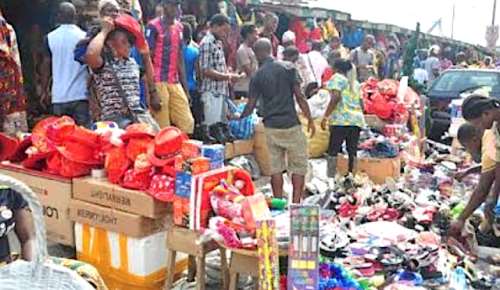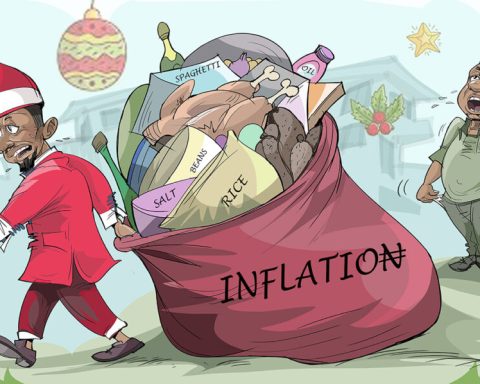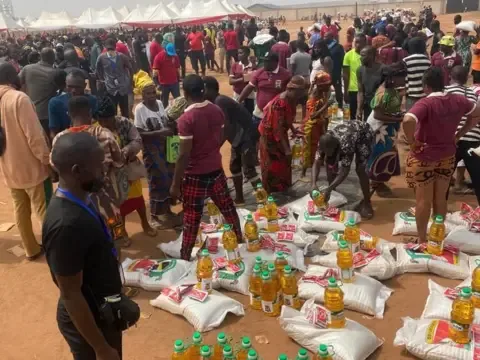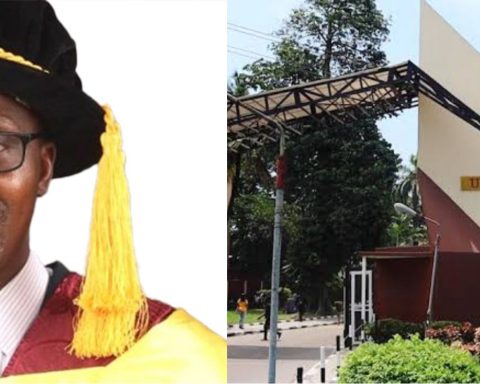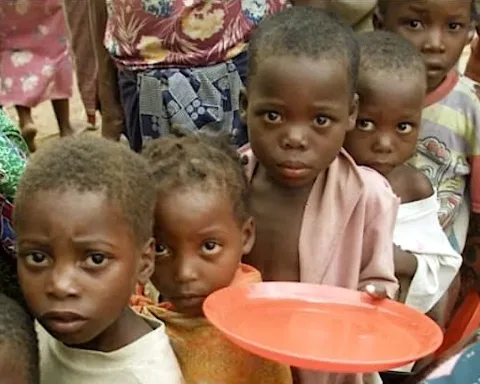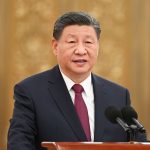As we enter the 2024/2025 Christmas and New year seasons, many Nigerians are grappling with a harsh reality: inflation has eroded their purchasing power, leaving families unable to afford even the simplest holiday traditions. From festive meals to travel plans and gifts, the joyous spirit of Christmas has been overshadowed by skyrocketing prices of basic goods and services.
Nigeria’s headline inflation rate hit 34.60 per cent in November 2024. This indicates an increase of 0.72 per cent points compared to the October 2024 inflation rate which was 33.88 per cent.
Join our WhatsApp ChannelThe rising cost of living, driven by economic policies and global economic trends, has forced Nigerians to prioritise survival over celebration. Across Lagos, stories of struggle and sacrifice reveal a somber reality for a nation known for its vibrant holiday celebrations.
Inflation Christmas Spending: Families Feel the Pinch
The markets in Lagos, once bustling with activity during the festive season, paint a different picture this year. Traders sit idly, watching potential customers walk by without buying. At the Oshodi food market, Chinyere Okonkwo, a foodstuff seller for over a decade, lamented, “I have been here since morning, and I’ve only sold a few cups of rice. Although there are a lot of people in the market as you can see but we are not selling like we use too. Last year, people bought bags of rice and cartons of oil. This year, they ask for prices and walk away. Everything is just too expensive.”
Similarly, Bisola Ibrahim, a yam and tomato seller at same market, shared her frustrations. “Walahai, things are difficult. It was not like this when Buhari was there. People just come and look without buying once I mention the price. Since morning, I have only sold ten tubers of yams; before, I would have sold 40.”
READ ALSO: Why Nigeria’s Inflation May Drop To 34.5% – Report
How Economic Policies Have Worsened Inflation
Economic analysts attribute the dire situation to government policies such as the removal of fuel subsidies and the floating of the naira. These measures have led to higher transportation costs and a weakened currency, further inflating the prices of goods and services.
Dr. Omotola Abimbola, a macroeconomic analyst, explained, “Nigeria is facing a cost-of-living crisis exacerbated by structural economic issues. Without targeted government intervention, many households will continue to struggle, especially during the holiday season.”
Even staples like rice and cooking oil, essential for festive meals, have seen astronomical price increases. A bag of rice now costs N107,000, up from N50,000 last year, while a 5-litre bottle of groundnut oil has risen from N6,000 to N19,000.
Personal Stories of Christmas Cutbacks
For many Lagosians, these economic pressures have reshaped holiday traditions. Emeka Anayo, a trader, explained how his family had to cancel their annual trip to Imo State. “The transport fare for traveling is more than N50,000 per person, and I am a father of three. The most important thing is to make sure the children are happy,” he said. “We’ll stay in Lagos this year and focus on basic needs instead of celebrations. Because we do not even know how next year will be”
Bayo Adeyemi, an uber driver, shared a similar sentiment. “We used to travel to our hometown in Osun State every December,” he said. “But fuel prices are so high now, and I can’t afford the transport fare for my family of five. We’ll stay in Lagos and hope for a better year ahead.”
The situation is equally bleak for traders like Adebanjo Nike, a fashion designer in Lagos. “People used to rush to make clothes for Christmas, but now they say they don’t have the money. I’ve only sewn five dresses this month, compared to 20 last year, some customers just keep saying they are saving up for next year” she said.
Nigerians Struggle to Maintain Holiday Spirit
Despite these challenges, some Nigerians are determined to find joy in the season. John Nicholas, a schoolteacher, said, “Christmas is about family and gratitude. We may not have much, but we’ll gather, pray, and be thankful for life. It’s a tough year, but we have hope.”
Yet, for many, hope is in short supply. Beatrice Nwankwo, a mother of three from Festac in Lagos State, admitted, “We used to buy new clothes for the children and cook plenty of food for visitors. This year, we can only afford the basics—maybe rice and stew if we’re lucky.”
Even employers have scaled back on holiday perks. Nkechi Udo, a secretary at a small firm, revealed, “We used to get a bag of rice and some money as a bonus. This year, ‘Oga’ said there’s no money. It’s disappointing because we were counting on that extra income.”
Experts Call for Urgent Economic Reforms
Economic experts warn that without immediate reforms, the situation could worsen. Development economist Professor Tayo Bello stated, “Nigerians are being impoverished by inflationary pressures. The government needs to step in with policies to stabilise prices and increase purchasing power.”
As families across Lagos and beyond brace for a subdued Christmas, many are left questioning the country’s future. “This year, we’re not thinking about celebration,” said Adeyemi. “We just want to survive and hope for a better 2025.”
Emmanuel Ochayi is a journalist. He is a graduate of the University of Lagos, School of first choice and the nations pride. Emmanuel is keen on exploring writing angles in different areas, including Business, climate change, politics, Education, and others.






